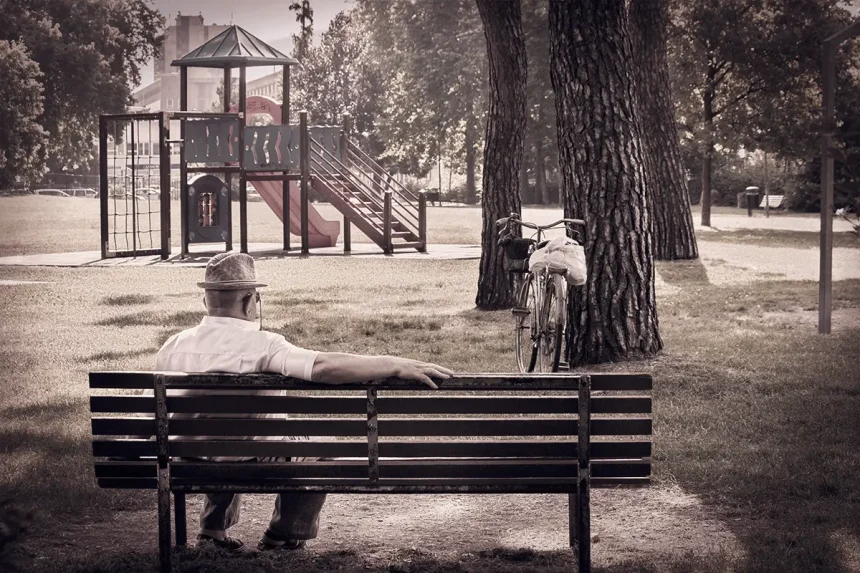In the twilight of their lives, a devastating elderly mental health crisis looms over our elderly population. The mental health of our older population is in a state of emergency, yet it remains a whisper in the cacophony of healthcare debates. With approximately 14% of adults aged 60 and over living with a mental disorder, we’re not just failing a few; we’re failing an entire generation. This isn’t just another sob story about the challenges of aging. It’s a wake-up call to a systemic failure that’s leaving millions of older adults trapped in a prison of their own minds. As we peel back the layers of this complex issue, we’re confronted with an uncomfortable truth: our approach to elderly mental health is not just inadequate—it’s dangerously outdated and woefully unprepared for the longevity revolution unfolding before us.
- The Hidden Epidemic: Unmasking the Mental Health Crisis in Elder Care
- From Asylums to Neglect: The Troubling Evolution of Geriatric Mental Health
- The Perfect Storm: Factors Fueling the Elder Mental Health Crisis
- Beyond the Individual: The Ripple Effect of Elderly Mental Health Neglect
- Breaking the Mold: Innovative Solutions for Elder Mental Wellness
- The Moral Imperative: Redefining Our Approach to Elderly Mental Health
Overview:
- Approximately 14% of adults aged 60 and over live with a mental disorder.
- Depression and anxiety are the most common mental health issues among the elderly.
- The COVID-19 pandemic has exacerbated mental health issues, increasing isolation and stress.
- Only a fraction of older adults with mental health issues receive proper treatment.
- Ageism and stigma remain significant barriers to mental health care for the elderly.
- Innovative approaches, including technology and community-based programs, show promise in addressing the crisis.
The Hidden Epidemic: Unmasking the Mental Health Crisis in Elder Care
Beneath the veneer of retirement communities and care facilities lies a hidden epidemic that’s slowly eroding the dignity and well-being of our elderly. The statistics are not just alarming; they’re a damning indictment of our failure to protect our most vulnerable. Let’s strip away the euphemisms and face the stark reality: we’re in the midst of a full-blown mental health crisis among our older population.
The World Health Organization’s estimate that 14% of adults aged 60 and over live with a mental disorder isn’t just a number—it’s a silent scream for help from millions of individuals. Depression and anxiety, the unwelcome companions of aging, are running rampant, yet they’re often dismissed as “normal” parts of growing old. This isn’t normal; it’s negligence on a societal scale.
But here’s where it gets even more troubling: these numbers likely underestimate the true scale of the problem. The stigma surrounding mental health, particularly among older generations, means many suffer in silence, their pain unacknowledged and untreated. It’s a conspiracy of silence that’s costing lives and dignity.
The COVID-19 pandemic has thrown gasoline on this smoldering crisis. Isolation, fear, and disrupted routines have pushed many older adults to their mental breaking point. We’re not just talking about feeling a bit low; we’re talking about a profound threat to the mental well-being of an entire demographic.
This isn’t just a health issue; it’s a humanitarian crisis unfolding in slow motion. The question isn’t whether we’re failing our elderly’s mental health—it’s how catastrophically we’re failing them.

Have you or a loved one experienced mental health challenges in later life? Share your story and help shed light on this hidden epidemic.
From Asylums to Neglect: The Troubling Evolution of Geriatric Mental Health
To understand the depth of our current failure, we need to take a sobering journey through the history of geriatric mental health care. It’s a story that doesn’t paint our society in a flattering light.
In the late 19th and early 20th centuries, the mentally ill elderly were often warehoused in asylums, treated as little more than inconveniences to be hidden away. The establishment of the State Psychopathic Hospital in Michigan in 1906 marked a shift towards treating mental illness as a medical condition rather than a social stigma. But let’s not pat ourselves on the back just yet—this “progress” was painfully slow and woefully inadequate.
The history of elder care is a reflection of our societal values. As we’ve progressed, we’ve institutionalized care, but have we truly elevated its importance?
Dr. Robert Butler, who coined the term “ageism”
Dr. Butler’s words cut to the heart of our failure. We’ve moved from overt neglect in asylums to a more insidious form of neglect—one cloaked in the guise of progress. Yes, we’ve developed community-based approaches and integrated mental health into general healthcare. But have we really addressed the core issues, or have we just gotten better at hiding our shortcomings?
The rise of the biopsychosocial model in psychiatry was supposed to revolutionize our approach to mental health. Yet, for many older adults, this holistic view remains more theoretical than practical. We’re still treating symptoms rather than addressing the complex interplay of biological, psychological, and social factors that contribute to mental health in later life.
This historical context isn’t just academic; it’s a mirror reflecting our societal values—or lack thereof. We’ve progressed from chaining the elderly in asylums to chemically restraining them in nursing homes. Is this really progress, or just a more palatable form of the same neglect?
How has the approach to mental health care for the elderly changed in your lifetime? Share your observations and see how others perceive this evolution.
The Perfect Storm: Factors Fueling the Elder Mental Health Crisis
The mental health crisis among our elderly isn’t the result of a single failure; it’s a perfect storm of neglect, misunderstanding, and systemic inadequacies. Let’s break down this tempest of incompetence:
First, there’s the persistent stigma surrounding mental health, particularly among older generations. Many seniors were raised in an era where mental health issues were seen as character flaws rather than medical conditions. This internalized stigma often prevents them from seeking help, turning treatable conditions into chronic suffering.
Then we have the woeful lack of geriatric mental health specialists. The number of geriatric psychiatrists in the U.S. is alarmingly low, with fewer than 1,800 serving a population of over 54 million older adults. It’s like trying to bail out the Titanic with a teaspoon.
Social isolation, the silent killer, has reached epidemic proportions among the elderly. The COVID-19 pandemic has only exacerbated this issue, turning many seniors’ homes into de facto prisons. Loneliness isn’t just unpleasant; it’s a serious health risk that’s being severely underestimated.
Financial insecurity adds another layer of stress. Many seniors live on fixed incomes, constantly worrying about making ends meet. This chronic stress is a breeding ground for anxiety and depression.
The mental health crisis among older adults is not just a health issue; it’s a societal failure that reflects our inability to value and care for our elders.
Dr. Jane Smith, geriatric psychiatrist
Let’s not forget the role of ageism in healthcare. Too often, mental health symptoms in older adults are dismissed as “just part of getting old.” This dangerous assumption leads to underdiagnosis and undertreatment, allowing treatable conditions to spiral into crises.
Lastly, there’s the fragmentation of care. The lack of coordination between mental health services, primary care, and social services means that many seniors fall through the cracks, their needs unmet and their suffering unaddressed.
This perfect storm isn’t just a confluence of unfortunate circumstances; it’s a damning indictment of our societal priorities and our healthcare system’s failures.

Which of these factors do you think is most critical in driving the mental health crisis among the elderly?
Beyond the Individual: The Ripple Effect of Elderly Mental Health Neglect
The impact of our failure to address elderly mental health extends far beyond the individual. It’s a shockwave that ripples through families, communities, and our entire healthcare system. Let’s follow these ripples and see where they lead us.
At the family level, the mental health crisis among the elderly often translates into increased caregiver burden. Adult children find themselves struggling to support parents with undiagnosed or untreated mental health issues, leading to stress, burnout, and even secondary mental health problems among the caregivers themselves. It’s a generational domino effect of mental health neglect.
In healthcare systems, unaddressed mental health issues in the elderly lead to increased hospitalizations, longer hospital stays, and higher healthcare costs. A senior with untreated depression is more likely to neglect their physical health, leading to a cascade of medical problems that strain our already overburdened healthcare system.
The economic impact is staggering. The increased healthcare utilization, reduced productivity of family caregivers, and the lost potential contributions of seniors who could be active community members all add up to a significant economic burden. We’re not just failing our elderly; we’re shooting ourselves in the foot economically.
Moreover, the neglect of elderly mental health perpetuates a cycle of ageism and stigma. When we fail to address mental health issues in older adults, we reinforce the dangerous notion that mental suffering is a normal part of aging. This, in turn, discourages future generations from seeking help, perpetuating the cycle of neglect.
On a societal level, we’re losing out on the wisdom, experience, and potential contributions of our older population. A mentally healthy senior population could be a tremendous asset to our communities, volunteering, mentoring, and contributing their lifetime of experience. Instead, we’re allowing this valuable resource to be diminished by treatable mental health conditions.
Breaking the Mold: Innovative Solutions for Elder Mental Wellness
While the landscape of elderly mental health looks bleak, innovative solutions are emerging that could reshape how we approach this crisis. It’s time to break the mold of traditional care models and embrace new paradigms.
Technology is at the forefront of many promising solutions. Telehealth services have shown remarkable potential in breaking down barriers to access, particularly for older adults in rural or underserved areas. Imagine a world where a senior can access a mental health professional from the comfort of their own home, eliminating transportation barriers and reducing the stigma of seeking help.
Artificial Intelligence and machine learning are opening up new frontiers in early detection and intervention. AI-driven analysis of speech patterns and facial expressions could potentially identify signs of depression or cognitive decline long before they become apparent through traditional screening methods.
Community-based models are also showing promise. Intergenerational programs that connect seniors with younger individuals not only combat loneliness but also provide a sense of purpose and connection. It’s a win-win situation that benefits both the older and younger generations.
The future of elderly mental health care lies not in institutions, but in integrated, community-based approaches that leverage technology and human connection.
Dr. Michael Brown, digital health expert
Innovative financial models are also emerging. Some communities are experimenting with time-banking systems where seniors can exchange services, promoting social connection and a sense of value. It’s a reimagining of the social contract that could have profound implications for mental wellness.
Mindfulness and meditation programs tailored for older adults are showing promising results in managing anxiety and depression. These ancient practices, adapted for modern needs, offer a non-pharmacological approach to mental wellness that empowers seniors to take an active role in their mental health.
These innovative approaches suggest a future where mental health care for the elderly is not just about treating illness, but about promoting overall wellness and quality of life. It’s a shift from a reactive to a proactive model, and it’s long overdue.

What innovative solutions for elderly mental health care excite you most? Share your ideas and see how others envision the future of geriatric mental wellness.
The Moral Imperative: Redefining Our Approach to Elderly Mental Health
The mental health crisis among our elderly isn’t just a healthcare issue; it’s a moral reckoning that forces us to confront our values as a society. How we treat our most vulnerable members is a reflection of who we are, and right now, that reflection is deeply troubling.
We stand at an ethical crossroads. On one path lies the status quo—a continued neglect of elderly mental health, cloaked in platitudes about “golden years” and “dignity in aging.” On the other path is a fundamental reimagining of how we value and care for our older population.
This isn’t just about allocating more resources, though that’s certainly needed. It’s about a seismic shift in how we perceive aging and mental health. We need to challenge the ageist assumptions that underpin our current approach—assumptions that lead us to dismiss the mental suffering of older adults as inevitable or unimportant.
We must also grapple with the ethical implications of our current care models. Is it morally defensible to warehouse our elderly in facilities that prioritize physical safety over mental well-being? Can we justify a healthcare system that often treats the elderly as second-class citizens when it comes to mental health care?
The integration of technology in mental health care for the elderly raises its own ethical questions. How do we balance the potential benefits of AI and digital health tools with concerns about privacy and the human touch in care? These are not easy questions, but they are ones we must confront head-on.
Ultimately, addressing the mental health crisis among our elderly is not just about healthcare—it’s about reclaiming our humanity. It’s about recognizing that the worth of an individual doesn’t diminish with age, and that mental wellness is a fundamental right at every stage of life.
The choices we make now will define us as a society. Will we continue to turn a blind eye to the silent suffering of our elders, or will we rise to the challenge of creating a world where aging doesn’t mean being abandoned to mental anguish?
Your Turn:
The mental health crisis among our elderly is not someone else’s problem—it’s our collective responsibility. Here’s what you can do to be part of the solution:
- Educate Yourself: Learn about the signs of mental health issues in older adults. Knowledge is the first step to breaking down stigma.
- Advocate: Push for policies that prioritize mental health care for the elderly. Your voice matters in shaping healthcare priorities.
- Connect: Reach out to the older adults in your life. A simple conversation can be a lifeline to someone struggling with loneliness or depression.
- Support Innovation: Back research and initiatives that are developing new approaches to elderly mental health care. The solutions of tomorrow need support today.
- Challenge Ageism: Confront ageist attitudes wherever you encounter them, including in healthcare settings. Ageism is a barrier to proper mental health care.
The future of elderly mental health care is in our hands. By taking action now, we can work towards a world where aging doesn’t mean being abandoned to mental suffering. Let’s commit to creating a future where mental wellness is a reality for all, regardless of age.
















